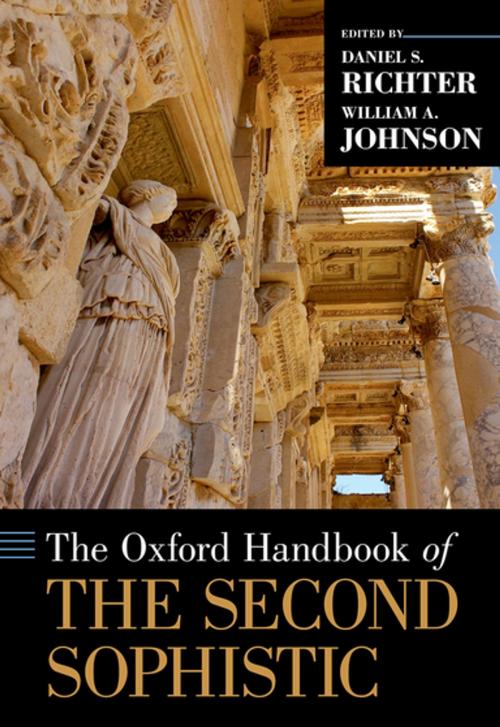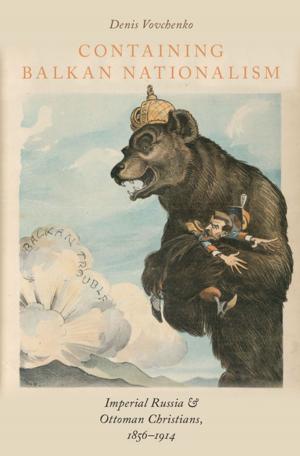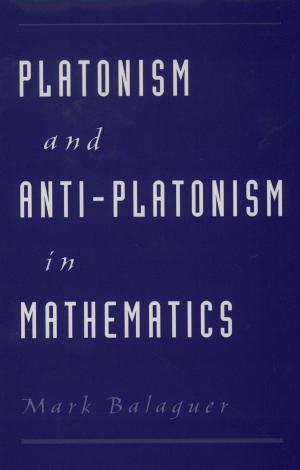The Oxford Handbook of the Second Sophistic
Nonfiction, Reference & Language, Language Arts, Public Speaking, Rhetoric, Religion & Spirituality, Philosophy, Ancient, History, Ancient History, Greece| Author: | ISBN: | 9780190855192 | |
| Publisher: | Oxford University Press | Publication: | October 24, 2017 |
| Imprint: | Oxford University Press | Language: | English |
| Author: | |
| ISBN: | 9780190855192 |
| Publisher: | Oxford University Press |
| Publication: | October 24, 2017 |
| Imprint: | Oxford University Press |
| Language: | English |
Focusing on the period known as the Second Sophistic (an era roughly co-extensive with the second century AD), this Handbook serves the need for a broad and accessible overview. The study of the Second Sophistic is a relative new-comer to the Anglophone field of classics and much of what characterizes it temporally and culturally remains a matter of legitimate contestation. The present handbook offers a diversity of scholarly voices that attempt to define, as much as is possible in a single volume, the state of this rapidly developing field. Included are chapters that offer practical guidance on the wide range of valuable textual materials that survive, many of which are useful or even core to inquiries of particularly current interest (e.g. gender studies, cultural history of the body, sociology of literary culture, history of education and intellectualism, history of religion, political theory, history of medicine, cultural linguistics, intersection of the Classical traditions and early Christianity). The Handbook also contains essays devoted to the work of the most significant intellectuals of the period such as Plutarch, Dio Chrysostom, Lucian, Apuleius, the novelists, the Philostrati and Aelius Aristides. In addition to content and bibliographical guidance, however, this volume is designed to help to situate the textual remains within the period and its society, to describe and circumscribe not simply the literary matter but the literary culture and societal context. For that reason, the Handbook devotes considerable space at the front to various contextual essays, and throughout tries to keep the contextual demands in mind. In its scope and in its pluralism of voices this Handbook thus represents a new approach to the Second Sophistic, one that attempts to integrate Greek literature of the Roman period into the wider world of early imperial Greek, Latin, Jewish, and Christian cultural production, and one that keeps a sharp focus on situating these texts within their socio-cultural context.
Focusing on the period known as the Second Sophistic (an era roughly co-extensive with the second century AD), this Handbook serves the need for a broad and accessible overview. The study of the Second Sophistic is a relative new-comer to the Anglophone field of classics and much of what characterizes it temporally and culturally remains a matter of legitimate contestation. The present handbook offers a diversity of scholarly voices that attempt to define, as much as is possible in a single volume, the state of this rapidly developing field. Included are chapters that offer practical guidance on the wide range of valuable textual materials that survive, many of which are useful or even core to inquiries of particularly current interest (e.g. gender studies, cultural history of the body, sociology of literary culture, history of education and intellectualism, history of religion, political theory, history of medicine, cultural linguistics, intersection of the Classical traditions and early Christianity). The Handbook also contains essays devoted to the work of the most significant intellectuals of the period such as Plutarch, Dio Chrysostom, Lucian, Apuleius, the novelists, the Philostrati and Aelius Aristides. In addition to content and bibliographical guidance, however, this volume is designed to help to situate the textual remains within the period and its society, to describe and circumscribe not simply the literary matter but the literary culture and societal context. For that reason, the Handbook devotes considerable space at the front to various contextual essays, and throughout tries to keep the contextual demands in mind. In its scope and in its pluralism of voices this Handbook thus represents a new approach to the Second Sophistic, one that attempts to integrate Greek literature of the Roman period into the wider world of early imperial Greek, Latin, Jewish, and Christian cultural production, and one that keeps a sharp focus on situating these texts within their socio-cultural context.















